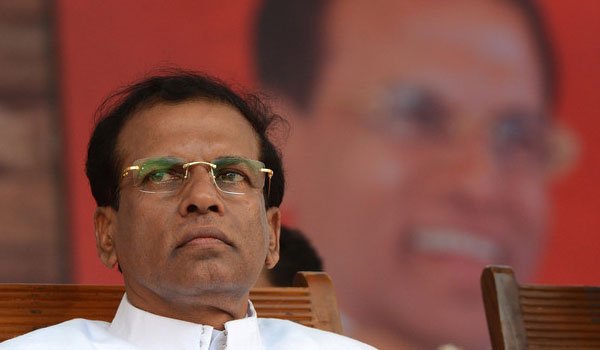Two days later, Sirisena vowed to end Rajapaksa’s decade-long rule in a Jan. 8 presidential election. The betrayal shook up the island nation, which has undergone a growth spurt since Rajapaksa oversaw the end of a 26-year civil war in 2009.
“Can you trust a person of that nature and hand over the responsibilities of president?” Rajapaksa, 69, asked at a Dec. 14 campaign rally in the tea-growing central highlands, referring to Sirisena’s defection.
Sirisena, 63, has been unapologetic. “One family is creating a soft dictatorship,” he told reporters in Colombo last month, referring to the Rajapaksas. “There’s corruption, injustice and rule of law has broken down. We’ve taken a decision to change the situation.”
The clash among former associates has turned a probable walkover into a competitive race, threatening the stability that has prompted the island’s $67 billion economy to expand about 7 percent per year on average since the war’s end. A Sirisena victory also risks disrupting Sri Lanka’s growing ties with China, its largest investor and second-biggest trade partner.
“A Sirisena administration would immediately run into big problems between its disparate alliance partners,” Sasha Riser-Kositsky, an analyst at Eurasia Group in Washington, said by e-mail. “I expect significant political instability should the ‘anybody but Rajapaksa’ coalition succeed in ousting him.”
Rising Stocks
Sirisena heads an alliance that includes four parties that currently control about a third of the 225-member parliament, a number that keeps changing due to defections. The biggest among them, the United National Party, is led by two-time prime minister Ranil Wickremesinghe, who encouraged privatizations and improved ties with the U.S. during his rule.
No reliable polls have been published so far in the campaign. Rajapaksa, who’s running for an unprecedented third term, won the last presidential election in 2010 by 18 percentage points. He called the vote two years ahead of schedule after seeing support wane in recent by-elections.
Rajapaksa’s woes have come even as inflation is the slowest in five years and the benchmark Colombo All-Share Index (CSEALL) has risen 24 percent this year, putting it among the world’s best performers. To boost his popularity, he has cut fuel and electricity prices while increasing state employees’ wages, raising pensions and paying farmers more for their crops.
Singing Politician
Sirisena has also promised to boost salaries for state employees and allowances for pensioners, as well as to cut taxes on key food items. He hasn’t indicated how he’d fund these other than by “stopping mega-corruption and wastage.”
Mostly, though, Sirisena is banking on frustration with Rajapaksa to propel him to victory.
Sirisena grew up in a rice-growing family and studied political science in what was then the Soviet Union. He spends his spare time composing and singing viridu, a traditional Sri Lankan music genre in which lyrics are spoken more than sung.
As a teenager, Sirisena joined the Sri Lanka Freedom Party, which is now headed by Rajapaksa. He’d been a member of parliament since 1989, and over the last decade under Rajapaksa has served as minister of both agriculture and health.
Sirisena quit his cabinet post when he announced his candidacy on Nov. 21 in a press briefing with leading opposition parties. Rajapaksa revoked his party membership the same day and fired him as general secretary.
Rajapaksa Dominance
“There had been talk that Sirisena had ambitions to be prime minister, and perhaps he realized he couldn’t get it from this regime,” Sanjeewa Fernando, a strategist at CT CLSA Securities in Colombo, said by phone.
In his manifesto, Sirisena promises to abolish the country’s “autocratic” executive presidency and end “unprecedented” corruption. He plans to review the nation’s ties with China and infrastructure projects it’s funded, saying they “endanger” Sri Lanka’s economic security.
Sirisena and other presidential opponents have accused Rajapaksa of nepotism and pressuring the judiciary. The president denies any wrongdoing.
Rajapaksa holds Sri Lanka’s defense and finance portfolios as well as ports, highways and aviation. His brother Basil Rajapaksa is minister of economic development. Another sibling, Gotabaya Rajapaksa, is the defense secretary, and the president’s son Namal is a member of parliament.
‘Abuse of Power’
Rajapaksa in 2010 oversaw constitutional changes that gave him increased powers in appointing senior judges and police. They also scrapped term limits, allowing him to run again.
“Previously the abuse of power was tolerated, but now it’s a theme of public conversation,” Jayadeva Uyangoda, a political science professor at the University of Colombo, said by phone. “Rajapaksa hasn’t come up with anything new in this campaign. That’s a problem when you’ve been in power so long. At this moment, the balance is in favor of Sirisena.”
(businessweek.com)






